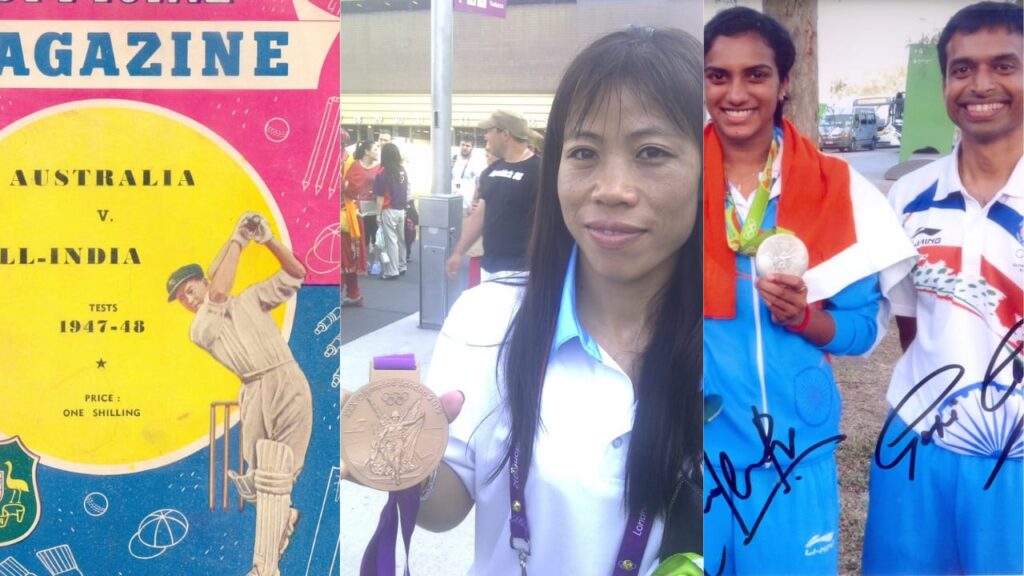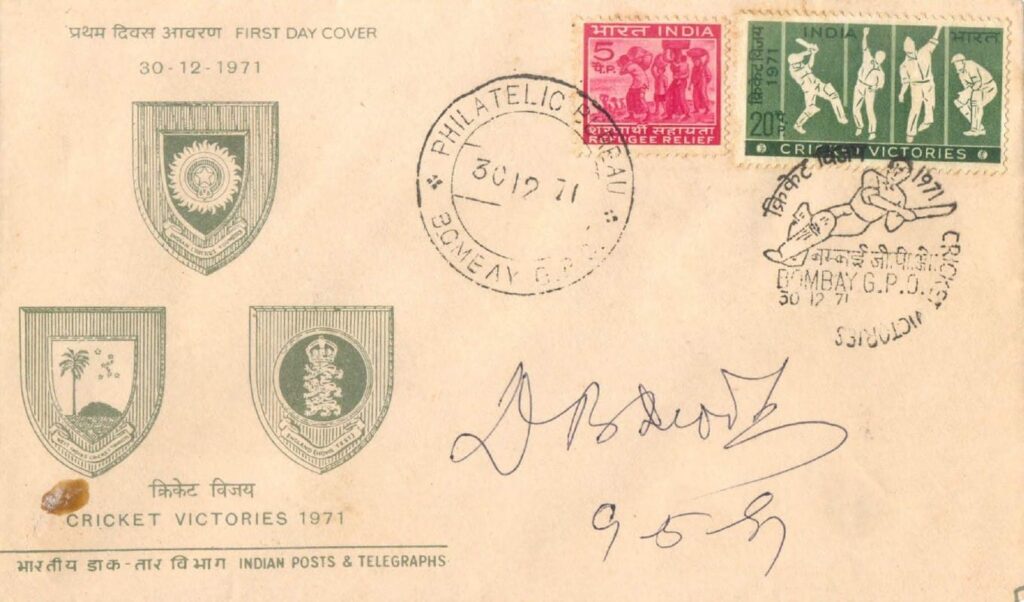
A Revsportz Exclusive by Boria Majumdar
As India marks 76 years of independence, it merits a very special look back into the history of the nation’s sport. As result, we at RevSportz decided to compile the greatest moments in the history of Indian sport in the 76 years between 1947 and 2023. We will carry the list in three parts, and in chronological order.
1947-48: First cricket tour of Australia, India encounter Bradman for the first time
The Indians lost the series 0-4, a result that appears all the more mystifying given the Indian performance in the first-class matches of the tour. This, it can be asserted, was almost single-handedly orchestrated by SirDonald Bradman. Bradman, though 39, was still at his best and his scores- 185, 132 and 127 not out, 201 and 57 retired hurt – bear testament to his dominance of the Indian attack.
1948: India win hockey gold at the London Olympics defeating Great Britain
It was a dream final: the defending champions from newly independent India taking on their former imperial masters who had avoided playing Olympic hockey once their former colony had shown their prowess with three golds in the pre-World-War-II years. Eventually, the Indians won the battle in style, defeating the British 4–0.
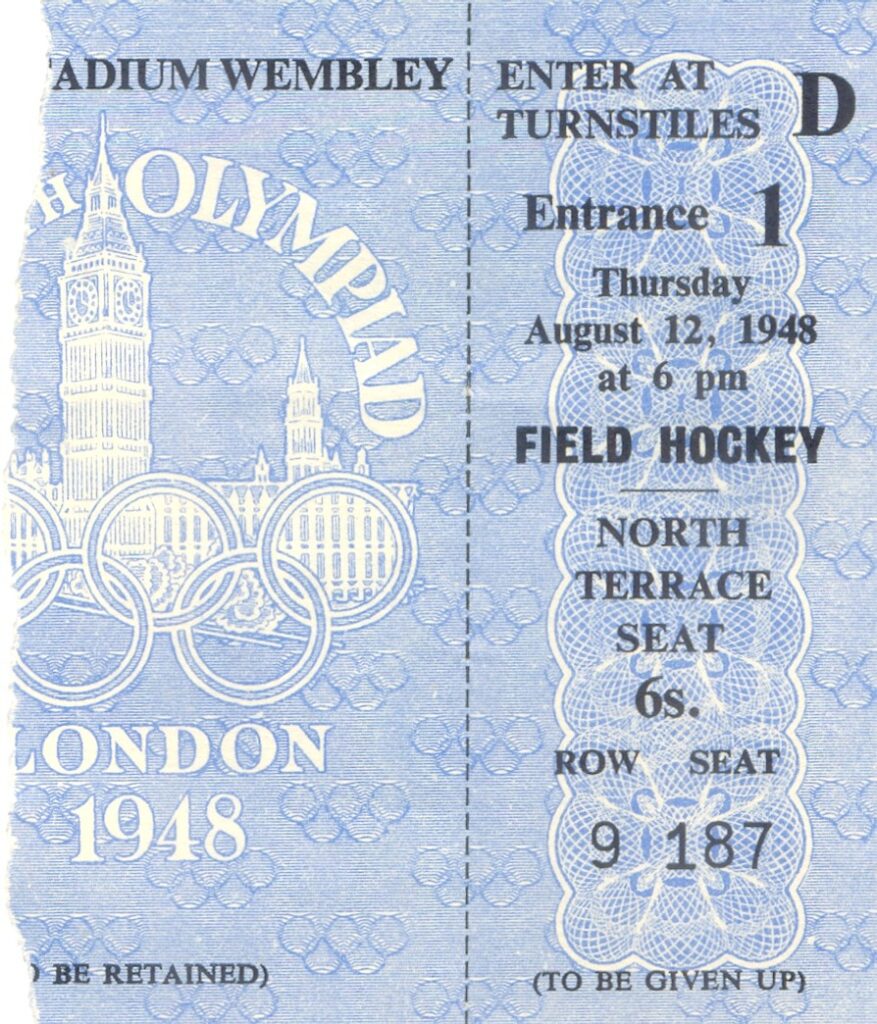
1950: India make it to the football World Cup in Brazil, but don’t play
It is evident from reports that there is some truth in the claim that India did get an opportunity to participate in the football World Cup of 1950. It is evident that the real reason for withdrawal was India’s inability to select a competitive team and garner the necessary funding to send it to Rio.
1951: First Asian Games in India
This first Asian Games was an Indian initiative, which was intrinsically linked to the larger Indian self-image of being a major Asian power, and the Nehruvian idea of India’s centrality in a new global order. The Games were deeply tied to the ideals, hopes and aspirations of Nehruvian India. They are also a useful prism to understand the struggle for Asian leadership that unfolded thereafter.
1952: First Test win, against England on home soil in Madras
Down 0-1 in the series, the Indians had much more than pride at stake going into the fifth and final Test of the series at Chepauk in Madras. Finally, at 3pm on February 10, 1952, when CD Gopinath, the youngest member of the side, caught Brian Statham, history was made. Vijay Hazare had led India to her first Test victory. The chief architects of the triumph were the “famous five” – Vinoo Mankad, Ghulam Ahmed, Pankaj Roy, Polly Umrigar and Khokhan Sen.
1952: India wins fifth hockey gold in Helsinki Olympics
The 1952 hockey final against Holland was expected to be a close affair. However, the Indians retained the title fairly convincingly, defeating Holland 3–1 in the final. Balbir Singh Sr was once again the star, scoring his third Olympic hat-trick in style and scoring nine out of the 13 Indian goals in Helsinki.
1952: KD Jadhav wins India’s first individual medal at the Olympics in wrestling
KD Jadhav will forever be remembered as the first individual medal winner for India at the Olympics. At Helsinki in 1952, he started the competition in terrific form, winning all his early bouts. Such was his performance that he was assured of a medal even before he fought his last two fights on July 22.
1953: Tenzing Norgay and Edmund Hilary scale Mount Everest.
An Indian atop the highest peak in the world was a moment we can never forget. With this achievement, Tenzing Norgay, a Sherpa, became forever part of the Indian imagination and narrative.
1956: India wins hockey gold in Melbourne
That the final in Melbourne was India’s first meeting against Pakistan on the Olympic stage was weighing on the minds of players from both teams. The tension was greater for the Indians because they had more to lose than Pakistan had to gain. For Pakistan, a silver medal would be a triumph, whereas for India anything but gold would be a disappointment. This explains the unrivalled scenes of jubilation following India’s narrow 1–0 victory in the final. The celebrations were more in relief than anything else. India, despite all criticism, had managed to retain the crown.
1956: India makes it to the Olympic football semi-finals for the first and only time
At the Melbourne Olympics in 1956, India became the first Asian nation to reach the semi final of the Olympic soccer tournament. They went down 4-1 to Yugoslavia, and eventually finished fourth. The high point, however, was Neville D’Souza’s hat-trick against Australia to make the semi-finals.
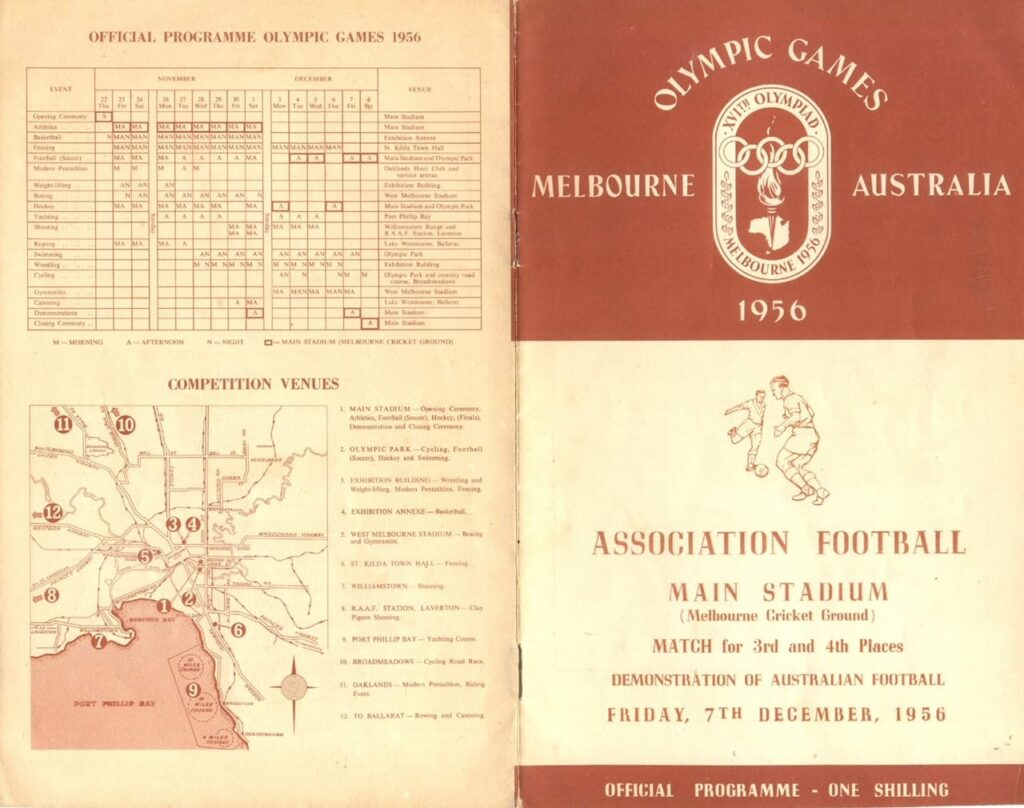
1958: Milkha Singh wins gold at the Commonwealth Games, establishes himself as a contender for an Olympic medal
Four gold medals at the Asian Games, a gold at the Commonwealth Games in 1958, victory in 77 of the 80 races he ran in his career, and the ‘Helms World trophy’ in 1959, given by the United States Athletics Federation to the best 400metres runner in the world – Milkha Singh won everything in his career barring an Olympic medal, losing by the narrowest of margins in Rome in 1960.
1958: Wilson Jones, World Champion
To Wilson Jones goes the distinction of becoming the first Indian to win the world amateur world billiards title. He repeated his feat in 1964. With Jones started a tradition later continued by Michael Ferreira, Geet Sethi and, more recently, Pankaj Advani.
1960: Ramanathan Krishnan makes it to the semi-finals of Wimbledon
Ramanathan Krishnan, seeded 7th, made history for India by making it to the semi-finals of the Wimbledon men’s singles. He lost to Neale Fraser, the eventual winner, but made it evident that he was definitely one of the best male tennis players of his time.
1961: Rewarding the Athletes – start of the Arjuna Awards
It was important that the sportspeople who brought honour to the country were duly rewarded for their achievements. The Arjuna Awards thus filled a most important vacuum.
1961-62: First series win against England
It was sweet revenge for India after the 1959 disaster. After three consecutive draws, the fourth Test at Calcutta put an end to the monotony with India winning by an innings and 187 runs. Chandu Borde, with knocks of 66 and 61 and a steady bowling effort of 4-65, was the star. Salim Durrani, with eight wickets in the match for 113, also played his part.
1962: Football Gold at the Jakarta Asian Games
India won the football gold at the Jakarta Asian Games with a landmark 2-1 victory over South Korea. PK Banerjee and Jarnail Singh were the key players for India. The footballers were given a rousing reception, and they were mobbed wherever they went for the next few weeks.
1964: Winning back the hockey gold in Tokyo
India re-established its supremacy in world hockey by defeating Pakistan 1–0. Rene G Frank, then secretary general of the International Hockey Federation, has left a moving description of this final and the emotions that moved both teams: “The India–Pakistan final which was played in a highly-charged emotional atmosphere was really extraordinary. If India finally proved a winner by a narrow margin, this was because in my personal opinion its players seemed to me to be inspired with a greater will than their opponents to carry off this victory.”
1966: India’s First Davis Cup Final
India reached the Challenge Round of the Davis Cup for the first time in 1966. They routed Japan in the Eastern Inter-Zonal Final, and then moved past West Germany and Brazil in the World Inter-Zonal Rounds to set up a finals clash with Australia, the defending champion. In the final, Ramanathan Krishnan and Jaidip Mukerjea won hearts by beating the legendary doubles pair of John Newcombe and Tony Roche.
1968: First overseas series victory
When the Indians under Tiger Pataudi beat New Zealand 3-1, a jinx of 35 long years was finally broken. When asked as to why it had taken so long, Dilip Sardesai argued that it was more a mental block than anything else. Once the block was overcome, victories would come more regularly, as 1971 so amply demonstrated.
1971: Watershed year for Indian cricket, beat West Indies in the Caribbean under Ajit Wadekar
This tour, regarded as a watershed in India’s cricket history, saw them competitive in all the five Test matches. The win in the second Test, which resulted in India’s first series win in the Caribbean, was followed up by other, no less tangible, performances against a cricket team that had previously bullied India. And the series is also remembered for the arrival of Sunil Gavaskar, who ruled Indian batting for the next decade and a half.
1971: India beats England in England for the first time
Remembering this triumph, BS Chandrasekhar said, “We won the match, if I’m not wrong, on Chaturthi day – someone had even brought an elephant to the ground. But it was only when we arrived back in India that we realized the enormity of our achievement. They took us from the airport to the Brabourne Stadium in open cars and some of those cheers still echo inside my head even today.”
1973: Vijay Amritraj at his best after making it to the quarterfinal of Wimbledon
Once referred to as the ABC of tennis along with Bjorn Borg and Jimmy Connors, there was never any doubting Amritraj’s talent. He was at his best in 1973 at Wimbledon, and was even two sets up in his quarterfinal against Jan Kodes, the eventual winner. It was another classic case of what could have been in Indian sport.
1974: India make the Davis Cup finals for the second time, conceding a walkover to apartheid South Africa
From an Indian perspective, Delhi’s stand against apartheid was best articulated by Vijay Amritraj in his speech before the United Nations special committee on apartheid on May 6, 1988. In his deliberation, Amritraj described his experiences of not having played the Davis Cup final in 1974 because India was drawn to play South Africa. As Amritraj put it, “It is very easy to say ‘let us keep sports out of politics’, but practically that is just not possible in certain cases. There are some issues that we must support or oppose, because we must clearly understand in our minds that we are first human beings before being sportsmen or women …”.
1975: India win the hockey World Cup in Kuala Lumpur
At a time when Indian hockey had started its downward slide in the Olympics, the World Cup win in 1975 under Ajit Pal Singh was the only silver lining. It was an important victory achieved amidst great adversity, and it remains the only time that India have won the tournament.
1976: India record the highest run chase in Test history scoring, 406-4 against the West Indies at Port of Spain.
The target of 403 was about the same as what the Australians had faced in Leeds in 1948, when Don Bradman (173 not out) and Arthur Morris (182) carried the day…The Australians won by seven wickets and India by one less, but in effect India lost only two wickets – Anshuman Gaekwad and Gavaskar – to the bowlers. The two others, Gundappa Viswanath and Mohinder Amarnath, were run out. With this knock, Gavaskar made sure that the calypso, “Gavaskar, the little master”, would continue to be played in Trinidad.
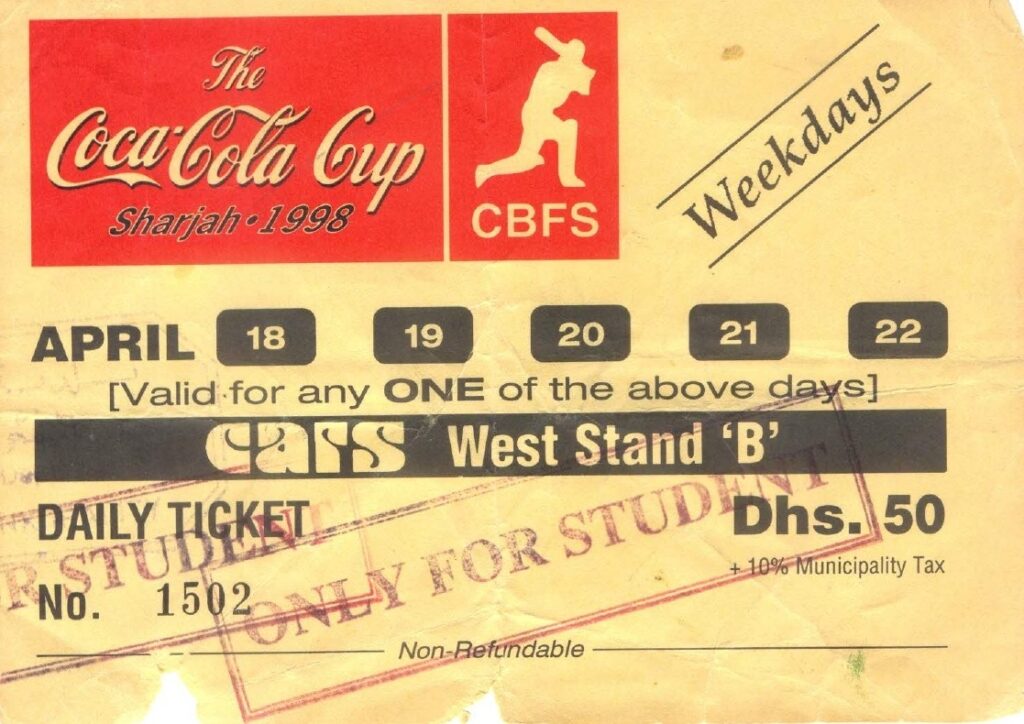
An honourable mention too for Sriram Singh, who led Cuba’s formidable Alberto Juantorena for more than 500m in the men’s 800m final at the Montreal Olympics. Such was the blistering pace Sriram set that Juantorena was able to streak clear of the pack in the final stages.


